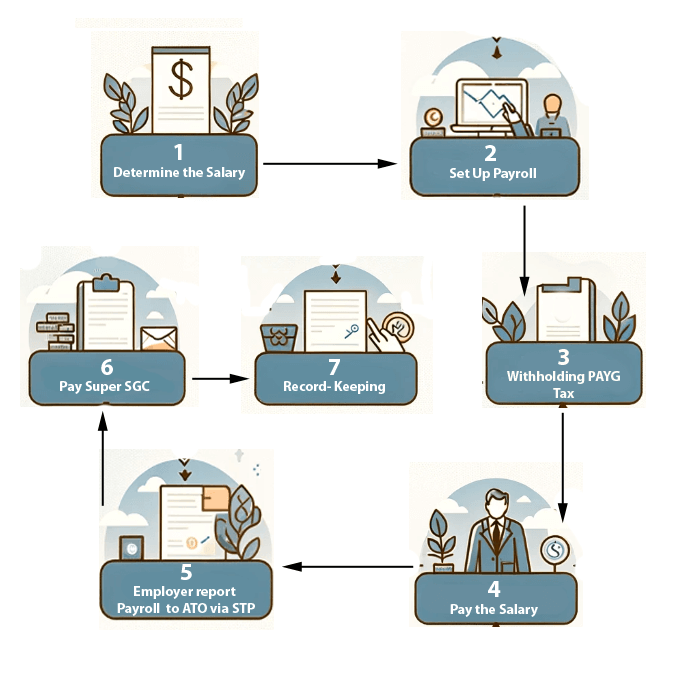Running a company means making smart choices, especially about your financial rewards. For directors, a simple and effective way to receive your earnings is through a director’s salary. It’s a clear, tax-wise strategy that fits within legal frameworks and secures a regular stream of income. This approach isn’t just about getting paid; it’s about ensuring your remuneration reflects the effort you invest in your company’s success.
What Is It?
Why pay a Salary to Yourself as a Director
By paying yourself a salary, you’re keeping your financial affairs orderly. When it’s time to pay your staff, you’re on the list too. The amount you receive is your take-home pay, after PAYG withholding taxes are deducted, and it goes directly into your personal account. This makes it easier to distinguish between business and personal expenses and streamlines your financial management.
It’s a clear and straightforward approach. You treat yourself as an employee of the company, which not only makes record-keeping simpler but also ensures compliance with employment and tax laws. In doing so, you take care of your own financial security in a way that’s aligned with the needs of the business.
How It Works: A Step-by-Step Guide

Step 1 Determine the Salary
Step 2 Set Up Payroll
Step 3 Withhold Taxes
Step 4 Pay the Salary:
Step 5 Report via STP
Step 6 Manage Superannuation
Step 7 Record-Keeping
Benefits and Tax Consequences of Paying a Director’s Salary
Benefits to the Company:
Tax Efficiency
Salary disbursements to directors are generally tax-deductible, potentially reducing the company’s taxable income.
Legal Compliance
Strategic Tax Planning
Corporate Governance
Equitable Compensation


Stable Income
Financial Distinction
Transparent Record
Incentivized Performance
Tax Compliance
Superannuation Growth
Regulatory Alignment
Tax Consequences

For the Company
Deductibility: Salaries paid to directors are typically deductible from the company’s income, easing its tax burden.

For the Director
Taxable Income: The director’s salary is considered taxable income but is moderated by the PAYG tax already paid during the year.
Super Contributions: Contributions to superannuation are made pre-tax, which can decrease the director’s taxable income.
Year-End Taxation: The final tax position of the director at the end of the Financial year will depend on their total income and the tax credits accrued.
Challenges and Considerations
Reasonableness of Salary
Payroll Management
Cash Flow Impact
Compliance with Tax Laws
Legal and Contractual Obligations
Performance and Remuneration Link
Equity Among Executives
Documentation and Transparency
Director’s Personal Tax Planning
Superannuation Strategy
Case Study: Implementing a Salary Strategy
Mia is the sole director of her graphic design business, “Creative Designs Pty Ltd,” which has seen stable growth.
Ready to Resolve Your Division 7A Loan Challenges? Let's Take Action!
Our team of DIV7A specialists is here to provide you with personalized solutions. Start by completing the Division 7A Loan Assessment Form, and we'll evaluate your situation promptly. Your financial success is our priority.
Start Tax Planning Now
Wondering how to withdraw money from your company while maximizing benefits and minimizing costs? It all starts with effective tax planning.
Book an Appointment
Ready for Personalized Solutions? Schedule Your Appointment!
Talk to a DIV7A Specialist
For expert advice on optimizing your Director’s salary package, please use the form below to get in touch with us:
[wpforms id=”264964″]
